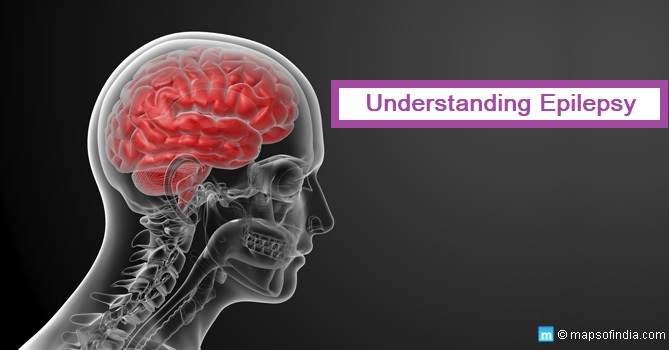Epilepsy is a brain disorder caused by miscommunication between nerve cells. It causes multiple seizures and can be life-threatening. A seizure is when a person suddenly becomes unconscious, and his body undergoes involuntary movements. Not all episodes mean you are epileptic seizures can also happen in situations where one feels danger.
However, if you get episodes repeatedly, you probably have epilepsy.
Causes
• Brain damage
• Abnormal development of the brain leading to disturbance of nerve cells.
• Meningitis
• A head injury or a blow to the head.
Symptoms
• Unconsciousness
• Involuntary movements of the body
• Disillusionment or confusion
Diagnosis
• Medical history of patient’s family as well as the patient.
• CT scan, MRI to scan the brain for any abnormal growth or deformities.
• Blood test
What to do if someone before you is having a seizure?
If someone around you suddenly starts having seizure-like symptoms, it is necessary to help them recover. First, however, there are a few rules you should keep in mind so that you don’t end up hurting them even more.
• Roll the person to their side; this helps to not choke on their vomit or saliva.
• Clear the area of any objects that could hurt them.
• Call for a doctor immediately and note down all the symptoms.
• Once the seizure passes, check for any external injuries and make sure they get to rest.
• Do not feed the victim anything immediately after a seizure; wait until they feel recovered.
What NOT to do if someone is having a seizure
• Do not overcrowd near the patient.
• Do not shake them or shout at them.
• Do not put any object in their mouth; it could choke them or even shatter their teeth.
• Let them have space and do not restrict them.
Treatment options
Treatments for epilepsy are available. Most patients are provided anti-epileptic medication that has shown excellent results for controlling seizures. For certain cases, doctors may suggest surgery.
Vagus Nerve Stimulation is a form of treatment in which an electrical pulse-producing device is inserted inside a patient’s chest.
High fat and low-carbohydrate diet are suggested for people with epilepsy. This helps decrease the chances of a seizure.
It is necessary to take medication even if you haven’t had a seizure in a while. One should take no medication without consulting a medical professional. Always consider your medication options with a doctor before taking any medicines. One should avoid alcoholic beverages.
If you’re out alone without someone who knows your condition, make sure to stay in safe areas where people are around. Let your friends or nearby people know of your condition in case help is needed.
People with epilepsy can lead normal lives. They can actively participate in all forms of sports and competitions. However, extra care should be provided just in case.




